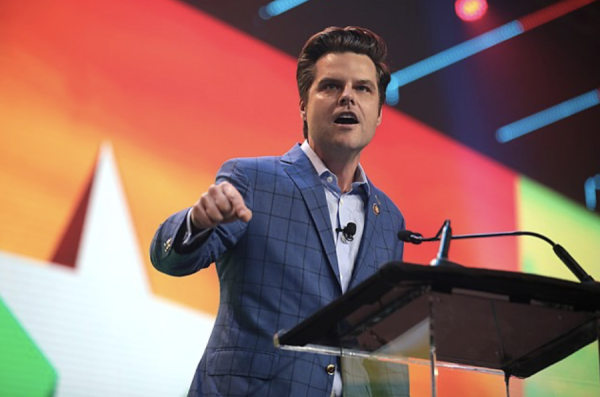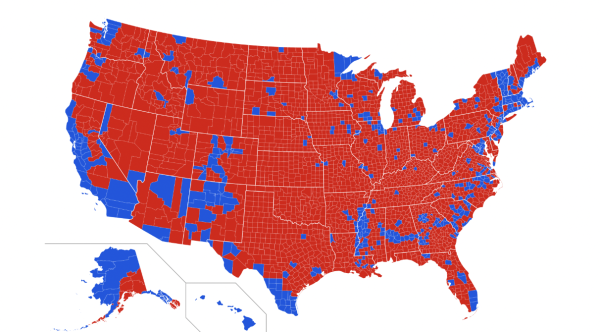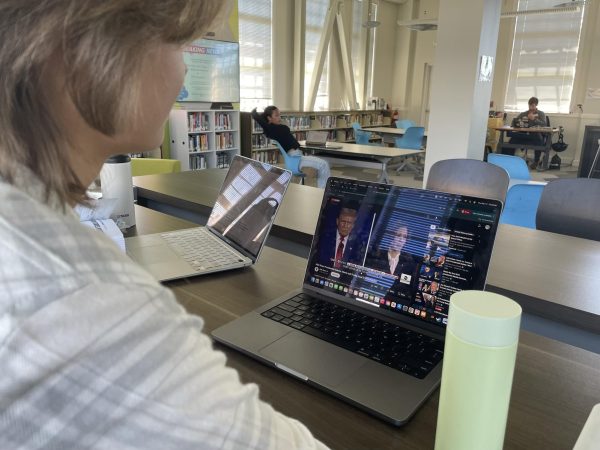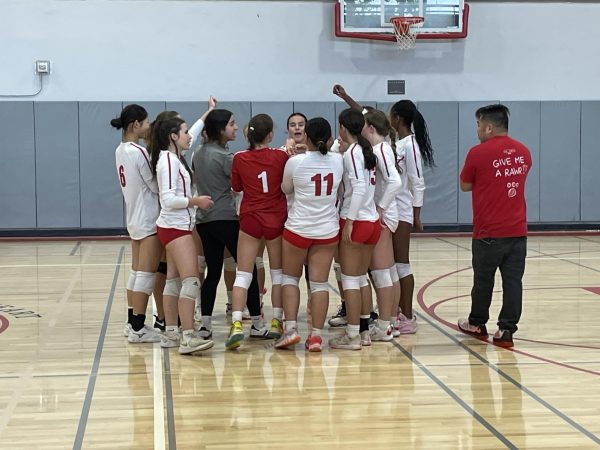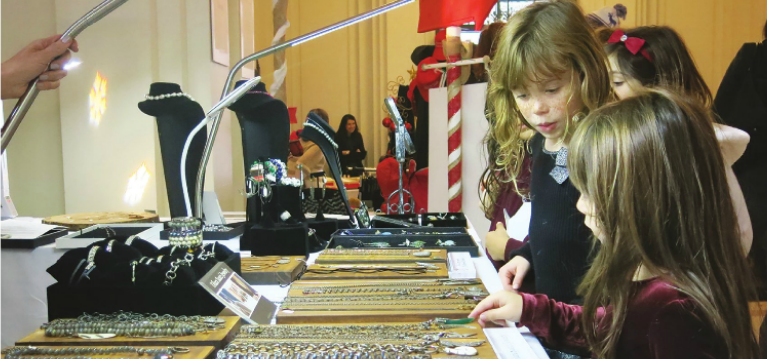Culture consumes Christmas
Kindergartners Rebecca Alba (left) and Elaine Roberts (right) admire the necklaces at one of the booths in the Main Hall. The “Merry Marketplace” was set up on Dec. 5 for members of the Sacred Heart community to take part in a Christmas boutique. Boots, food truck and games were part of the event. The items for sale ranged from jewelry to books to toys for children.
Seasonal store-front displays and back-to-back advertisements showcasing consumer goods, such as clothing and technology are a common sight in weeks leading up to December holidays, but holiday consumerism, buying and giving store-bought goods, may not be inherently bad.
“I think that one mode of care and affection has dominated all others because, truth be told, the others don’t make as much money in the same way,” philosophy teacher Paul Pryor Lorentz said. “I enjoy giving things, but I think when it becomes an ‘-ism,’ when people lose sight of other ways of showing care and affection, that’s a problem.”
Pryor Lorentz connected traditions involving gift-exchange to the concept of the five “love languages,” or ways individuals express and experience affection.
“For some people, the giving and the receiving of gifts is the way in which they communicate their care or their love for someone,” Pryor Lorentz said. “But, there’s at least four other ways, which are spending quality time together, words of affirmation, physical affection and acts of service.”
Senior Sophia Slacik says when she decides to buy gifts for her family during the holidays, she aims for purchases that give recipients experiences rather than products.
“I’m buying Warriors tickets for my dad, and I got ones to a game in January,” Slacik said. “For my sister — her birthday’s actually on Christmas — I take her out to afternoon tea on the 23rd every year as a tradition because I think that if you have to spend money and buy into the consumerism, then it’s better to spend it on things where you spend time with your loved ones rather than just getting them new technology.”
Junior Maya Shur, who celebrates Hanukkah, does not believe that consumerism plays a major role in how she and her family observe the holiday.
“My family isn’t super big on gifts for Hanukah, but we do make a point of being together,” Shur said. “I do think that a lot of my friends who celebrate Hanukkah look forward to eight days of presents rather than eight days of spending time with family.”
Stores may capitalize on cultural sentiment associated with the holiday season and offer incentives to potential in-store or online customers in order to profit, according to economic teacher Michael Steinbrecher.
“The holiday season usually represents their biggest quarter of the year, so when you’re really trying to get your numbers up for the year, there’s a big push to do it in the holiday season,” Steinbrecher said. “So that last quarter of the year — October, November, December — is where they’re really looking to make their big money. That’s why we have Black Friday starting on Thursday and Cyber Monday, and deals, deals, deals.”
While consumerism may have some negative effects on an individual’s idea of the holiday traditions, it is okay in moderation, according to Slacik.
“If people can remember what Christmas is really about, which is family and spending time with those you love, you don’t have to completely reject the consumerist aspect because it’s nice to receive a gift and to give gifts,” Slacik said. “You just have to remember what’s really important — not the new iPhone or the new iPad.”
Participating in holiday consumerism by buying gifts for children can be an appropriate way to get them excited about holidays with traditions and values they might not fully comprehend.
“It does build a sense of excitement and a sense of anticipation that’s age-appropriate for them,” Pryor-Lorentz said. “As a kid, I would get really excited for presents and now I can remember and I can find that child-like jubilation as I transfer my focus, anticipation and hope onto things of deeper significance.”







